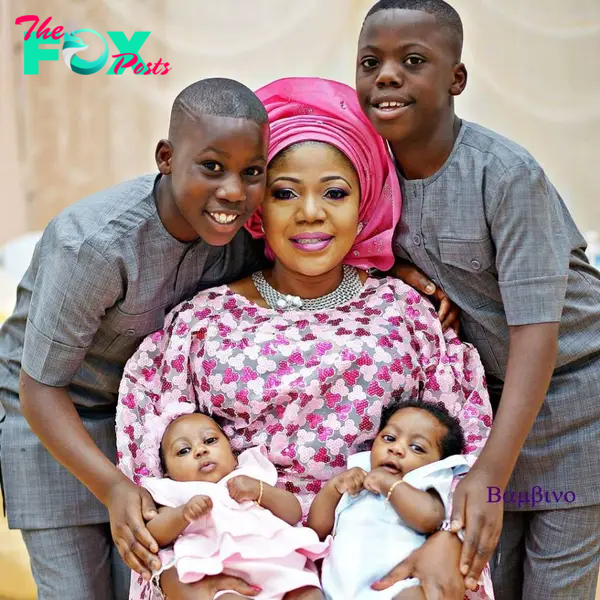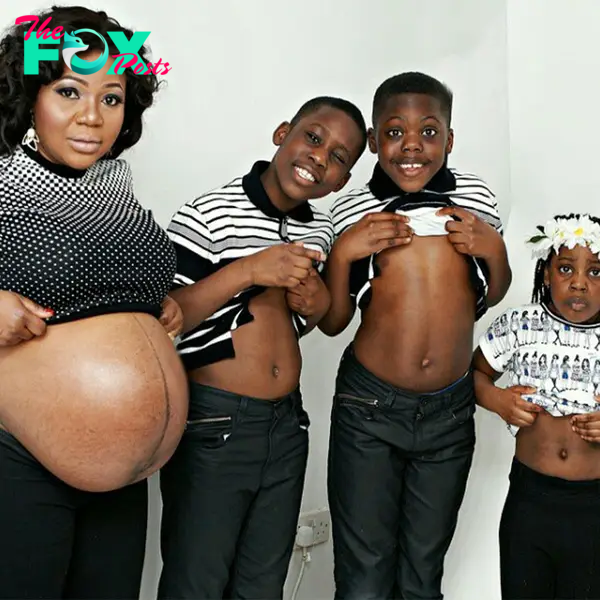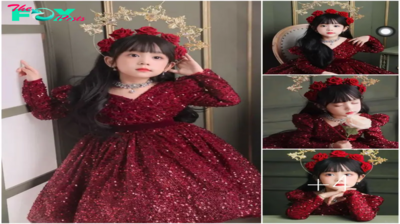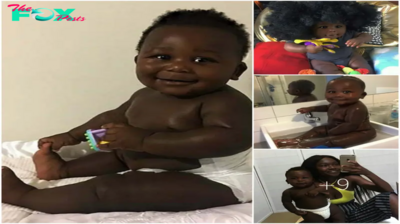Lifestyle
The 40-year-old mother defied the odds, welcomed her second set of twins and basked in the overwhelming happiness of unprecedented surprises surrounded by angels.
 Margaretha is a woman of the Yoruba tribe, from Africa. Ten years after her first set of twins, Margaretha is expecting another set of twins! The birth of a baby is a joyous occasion. It is often celebrated and lauded. In the Yoruba tribe, which originates in Nigeria, twin births have a high incidence. The excited mother shared the post below on her Instagram page. “Ten years after my first set of twins one of each this time…. I feel blessed opportuned, elated that small me have 5 blessed children God this unending joy in me plssssss put in all women out there believing and waiting for such miracles. My Joy knows no bound…..God is been You…. children of my old age…. at 30 i had twin boys n at 40 am having one of each….. thank You heavenly Father” Margaretha wrote.
Margaretha is a woman of the Yoruba tribe, from Africa. Ten years after her first set of twins, Margaretha is expecting another set of twins! The birth of a baby is a joyous occasion. It is often celebrated and lauded. In the Yoruba tribe, which originates in Nigeria, twin births have a high incidence. The excited mother shared the post below on her Instagram page. “Ten years after my first set of twins one of each this time…. I feel blessed opportuned, elated that small me have 5 blessed children God this unending joy in me plssssss put in all women out there believing and waiting for such miracles. My Joy knows no bound…..God is been You…. children of my old age…. at 30 i had twin boys n at 40 am having one of each….. thank You heavenly Father” Margaretha wrote.

Twins, the birth of two offspring from the same pregnancy, is a relatively uncommon phenomenon, and as such, twins are often regarded as special. Worldwide, the birth rate of twins varies by region and country. Latin America and Southeast Asia have the lowest rates, with only about 9 sets of twins per every 1,000 births. In Europe, the figure is about 16 twins for every 1,000 births, and in the United States, it is about 33 for every 1,000 births. And in central Africa, that number rises to around 18 to 30 sets of twins for every 1,000 births.

However, the Yoruba people of southwest Nigeria boast the highest number of twin births in the world, with about 50 sets of twins for every 1,000 live births. Igbo Ora, a sleepy agrarian town 80 kilometers from Lagos, is easily the twin capital of the world: unconfirmed estimates from the town say it boasts a mind-blowing 158 sets of twins for every 1,000 live births.

In Igbo Ora – as with many surrounding Yoruba towns – twins are commonly called “Taiye” and “Kehinde,” respectively, after the order of their births. In addition, they are almost always dressed in matching outfits, at least for the first few years of their lives. It is also not uncommon to find in Igbo Ora people who regard twins as special creatures and accord them worship as minor deities in a town where every household boasts at least a set of twins.

-

 Lifestyle2h ago
Lifestyle2h agoBREAKING: One Direction stars gather at former member Liam Paynes funeral, and a surprise meeting between Kate Cassidy and Cheryl Cole sparks see more.cau
-

 Lifestyle2h ago
Lifestyle2h agoBREAKING NEWS: Keanu Reeves Refuses to Present Whoopi Goldbergs Lifetime Achievement Award: Shes Not a Good Person Full story.cau
-

 Lifestyle4h ago
Lifestyle4h agoOne Direction stars mourn as Liam Payne laid to rest | The Express Tribune
-

 Lifestyle4h ago
Lifestyle4h agoMescal hails Ronan's callout on women's safety | The Express Tribune
-

 Lifestyle8h ago
Lifestyle8h agoHOT NEWS: KELCE NOT HAPPY- Travis Kelce vents his anger UP over Chiefs first loss, That makes me angry..cau
-

 Lifestyle8h ago
Lifestyle8h agoI Couldn’t Reach out to My Husband for Days – Then My Mother-in-Law Called Me & Revealed the Shocking Truth
-

 Lifestyle8h ago
Lifestyle8h agoMy Stepmom Made Me Sleep in a Shed and Gave My Room to Her Kids — My Mom Immediately Brought Her Back Down to Earth
-

 Lifestyle8h ago
Lifestyle8h agoWoman Comes to Meet Her Fiancé’s Parents and Sees Another Woman Posing as Her at the Dinner — Story of the Day


























